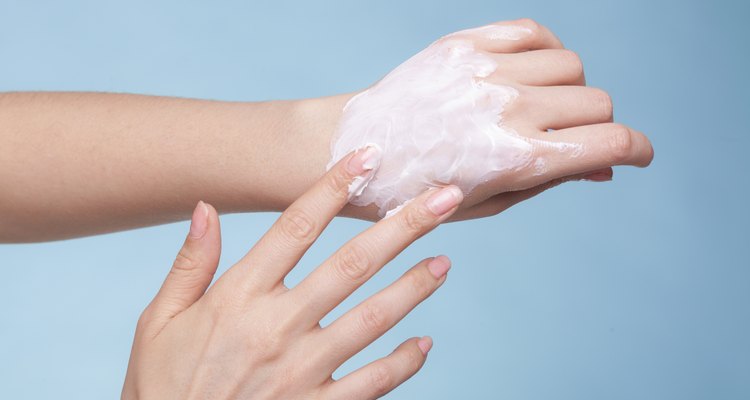
Voyagerix/iStock/Getty Images
Nutrition is crucial for overall well-being and health. A balanced diet helps the body function properly and build a defense against harmful diseases and conditions. Lack of nutrients hurts the body internally and affects the body externally. Dry, flaky skin is a direct result of poor nutrition. If skin is cracking and dull in appearance, don't just look at skin care, the season or the climate. Dry, flaky skin can be a sign of a bigger nutritional problem.
Effects
A lack of antioxidants such as vitamin A, C and E make skin vulnerable to free radical damage from the environment. Free radicals are unpaired molecules that damage the skin and cause premature aging and dryness. Antioxidants regulate oil production in the skin, prevent cell damage, lubricate cell membranes, produce collagen and encourage new cell growth for smooth, supple skin.
Considerations
B vitamins are necessary for smooth and hydrated skin. Although a deficiency in B vitamins is rare, it's possible. If this water-soluble vitamin isn't replaced on a daily basis, the skin can suffer. Dry, cracked skin is a result of insufficient B vitamins. B vitamins all work together to create healthy skin, so a B complex vitamin is the best option.
Misconceptions
Not all sun exposure is bad. Although you shouldn't bake in the sun, a deficiency in vitamin D leads to dry, flaky skin. Many foods--such as dairy products and cereals--are fortified with vitamin D. Look for these products the next time you go grocery shopping to ensure that you get an adequate amount of vitamin D.
Foods
Foods rich in antioxidants include colorful fruits and vegetables. Berries are especially potent; so are orange and red fruits and vegetables. Dairy products and lean meats such as turkey and chicken are good sources of B vitamins. Fish and eggs are good food sources of vitamin D.
Treatments
Skin treatments for nutrient-deficient dry skin include natural ingredients that are found in most kitchens. Olive oil is an excellent moisturizer to help skin stay moisturized and permeable. Add a few drops of pure vitamin E oil to the olive oil for an intensive and effective nourishing night treatment. A weekly honey mask also benefits dry skin because it attracts moisture and helps the skin lock it in. Honey also contains potassium, which helps prevent bacteria built up from accumulated dry skin flakes.
Additional Tips
Dry skin needs constant hydration. Drink at least 64 oz. water per day to ensure that you get enough fluids. Take a multivitamin when skin is dry so that the body isn't missing any form of nutrition. Always take a multivitamin with food for proper absorption.
Related Articles

How Does Brewer's Yeast Benefit Skin?

Which Vitamins Can Help Reverse ...

Vitamins for Mental Alertness

Zinc & Copper for Aging Skin

How to Reduce Acne Inflammation

Benefits of Shea Butter and Coconut Oil ...

How to Control Sebum in Hair with ...

Can Age Spots Be Reversed?
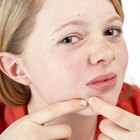
How to keep your face smooth and ...
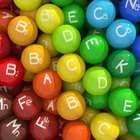
What Vitamins Help the Liver?

Nutrition Information on Blueberries

Can You Change Skin Tone with Food?
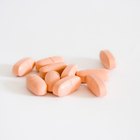
Vitamins for Damaged Hair

How to Make Scrambled Egg With Spinach

Seborrheic Dermatitis & Nutritional ...

Are There Foods That Heal Age Spots?

How to Make Vitamin A for Skin Care
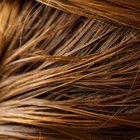
Can Eating Healthy Food Change the ...

Best Time to Take Vitamin B Complex

Avocado Serving Size & Nutrition
References
Resources
Writer Bio
Clark Sarullo is an experienced professional writer with expertise in natural skin care, hair care, nutrition, stress management, relaxation techniques, fitness and management of various health conditions. Other areas of expertise include personal finance, money management and debt solutions. Sarullo is based in Atlanta and holds a Bachelor of Science in psychology from the College of Charleston.
Photo Credits
Voyagerix/iStock/Getty Images